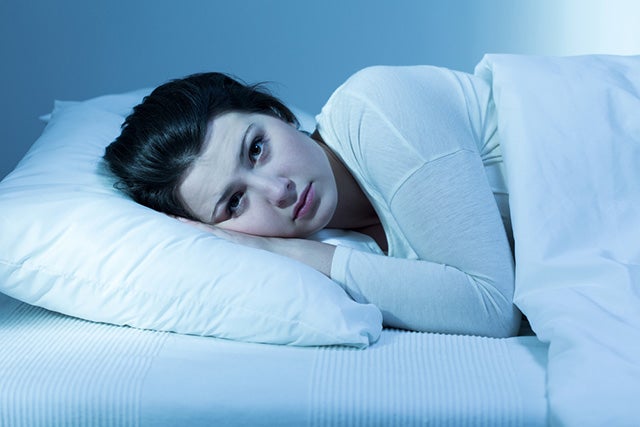Are your jeans a little tight, your scale a little ornery, or your pantry a little too full of sweets? Then you might want to re-evaluate your sleeping habits.
Let’s discuss whether sleep can help you lose weight and how much sleep you should be getting. Once you know where you’re at sleep-wise, you can start making positive changes to your health and waistline.
Reasons to Consider Losing Weight
Obesity has serious negative effects on health and is a growing concern in today’s world. Reaching and maintaining a healthy weight can benefit your physical, mental, and emotional health. So, here are some reasons to consider shedding some extra pounds:
- You’re worried about your health.
- You’re overweight or obese.
- There’s a family history of heart issues.
- You want to avoid diseases like cancer and diabetes.
- To boost your immune system.
- You want to have a better sex life.
- You want an increase in confidence.
Really, any reason for wanting to lose extra weight is a valid reason. Whatever your goals are, keep reading to learn how sleep affects your weight.
Can Lack of Sleep Affect Your Weight?
Yes, studies have shown a correlation between lack of sleep and weight gain. There are a number of potential causes for this, a few of which I’ve outlined below.
Less Frontal Lobe Activity and More Reward Center Activity
The frontal lobe is responsible for things like impulse control. The “reward center,” on the other hand, is what makes us feel good when indulging ourselves in something we enjoy. When you combine less activity in the former with more activity in the latter, you’re more likely to overeat.
Increased Cravings for Junk Food
Elaborating on the previous point, those who don’t get adequate sleep tend to have more cravings for junk food.
The reward center tends to fire up when we indulge in sweets or other high-fat, high-carb foods. As a result, our brain wants us to eat more and more of those unhealthy food items. When this becomes a cycle or a habit, it can lead to weight gain.
Decreased Sensitivity to Insulin
To put it simply, insulin is a hormone that converts glucose into energy. Sleep deprivation causes your body to lose sensitivity to insulin. In other words, the food you eat will be stored as fat instead of being turned into energy.
Hormones – Ghrelin, Leptin, and Cortisol
There are three hormones that play a significant role in our eating patterns:
- Ghrelin makes you feel hungry when you need to eat.
- Leptin makes you feel satisfied after eating.
- Cortisol is called the “stress hormone.”
When you’re sleep-deprived, your body has increased levels of ghrelin and cortisol. The increased ghrelin will make you feel hungry even when you don’t need to eat. Meanwhile, cortisol can both make you hungrier and cause you to store more fat.
At the same time, sleep deprivation causes decreased levels of leptin. This means that you’ll have to eat more before feeling full and thus consume extra calories.
Can Too Much Sleep Affect Your Weight?
In a similar vein, getting too much sleep can be equally damaging to your waistline. To be clear, “too much” sleep is considered 9+ hours per night.
Studies have indicated that sleeping longer than 9 hours causes weight gain. While the exact reasons are unknown, there are a few possibilities:
- You burn fewer calories while asleep.
- It can interfere with mealtimes, depriving you of essential nutrients.
- It can cause your hormones and biorhythms to become unbalanced.
Just as too little sleep can interfere with cognitive and bodily functions, so can too much sleep.
Do You Lose Weight While Sleeping?
While your body does burn some calories while sleeping, you cannot healthily lose weight by just sleeping. Your metabolism actually slows down while you’re asleep, and you’re not actively exercising.
That said, getting enough sleep plays a crucial role in weight maintenance. See how sleep can help you get (and stay) slim:
- It helps keep your ghrelin, leptin, and cortisol levels in check (appetite regulation).
- It will give you greater mental clarity and impulse control.
- It will give you more energy during the day so that you can exercise.
- It will help get you to bed at a regular time, so you’re less likely to snack late at night.
How Much Sleep Do You Need to Maintain Your Weight?
The ideal amount of sleep is 7 to 9 hours, with some experts believing that closer to 7 is optimal. This amount of sleep will keep your hormones in check, keep your mind sharp, and keep your energy levels up.
Not sure how to start sleeping better? Here are a few tips:
- Create a sleep routine and schedule.
- Avoid caffeine and alcohol right before bedtime.
- Do a relaxing activity in the evening.
- Avoid screen time right before bed.
- Sleep in a dark, cool room.
Getting into a healthy sleep habit can be difficult at first, but it’s well worth it. Over time, you’ll begin noticing positive changes in your relationship to food and exercise. You may even experience some weight loss as a result!
The Bottom Line
If you’re struggling with obesity or a related issue, prioritizing your sleep can help you become a healthier individual. 7-9 hours of sleep each night helps with hormone regulation, mental clarity, impulse control, and energy levels.
How much sleep do you get on a typical night? I’d love to hear from you in the comments below! Then check out our breakdown of the best natural sleep aids.
Photo credit: G-Stock Studio/Shutterstock; Photographee.eu/Shutterstock;
Creativa Images/Shutterstock; Prostock-studio/Shutterstock;
Sergey Chumakov/Shutterstock; l i g h t p o e t/Shutterstock;
AnnyStudio/Shutterstock








